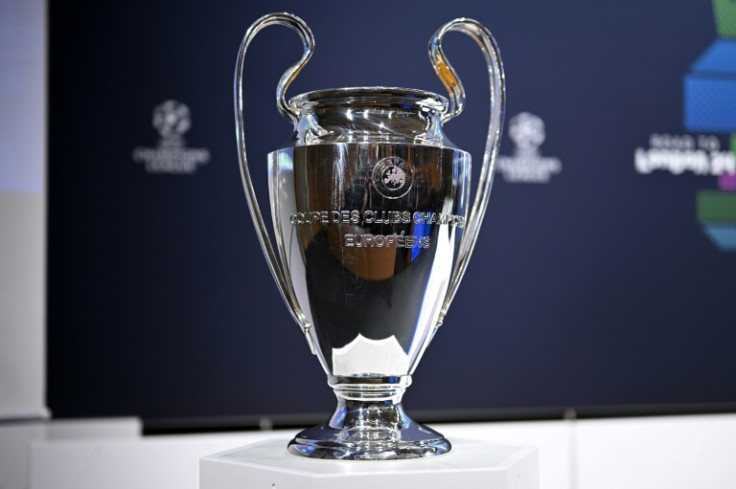UEFA Suffers Court Defeat, But Super League Finds Few Fans
Europe's top court dealt football governing body UEFA a scything legal tackle on Thursday, but an attempt by rival Super League promoters to kick off a new competition met a solid defensive wall of clubs and fans.

Europe's top court dealt football governing body UEFA a scything legal tackle on Thursday, but an attempt by rival Super League promoters to kick off a new competition met a solid defensive wall of clubs and fans.
Responding to a query from Spanish judges, the European Court of Justice ruled that UEFA had broken EU law by abusing its "dominant position" in European football to stifle an upstart breakaway league of elite clubs.
But when the firm promoting the Super League seized on the court victory to announce plans for new 64-team tournament to compete with or replace UEFA's flagship Champions League, it was met with scorn and rejection.
Only two clubs, Spanish giants Real Madrid and Barcelona, are still publicly attached to the Super League project.
"We will not try to stop them. They can create whatever they want," sneered UEFA president Aleksander Ceferin. "I hope they start their fantastic competition as soon as possible ... with two clubs."
European football was hit with a bombshell in early 2021, when 12 of its biggest clubs announced they had signed up to the planned Super League, triggering a furious backlash from fans and a stark warning from UEFA that clubs and players who took parts would be barred from competitions like the World Cup.
Within 48 hours nine of the 12 rebel clubs -- including six from the English Premier League -- backed down and the project collapsed, leaving promoters A22 Sports Management to launch a legal challenge through the Spanish courts, which referred the question to the ECJ.
In response to the Super League threat, UEFA launched a major reform of the Champions League starting in 2024, with 36 teams involved instead of 32. The clubs will play in a single league competition, which will replace the current group stage, guaranteeing at least eight matches for each team.
On Thursday, Europe's top court came back with its verdict, on the face of it a massive blow to UEFA.
"The FIFA and UEFA rules making any new interclub football project subject to their prior approval, such as the Super League, and prohibiting clubs and players from playing in those competitions, are unlawful," the ECJ ruled.
Because UEFA operates as a monopoly in setting the rules, while also organising tournaments of its own such as the Champions League, its criteria for authorising rival competitions should be "transparent, objective, non discriminatory and proportionate".
"However, the powers of FIFA and UEFA are not subject to any such criteria. FIFA and UEFA are, therefore, abusing a dominant position," the court ruled.
A22 Sports Management responded to the ruling by crying victory and promising to launch a new Super League project with 64 teams from across Europe split into three divisions with promotion and relegation within their system and free video streaming to fans from a dedicated app.
"We have won the right to compete. The UEFA monopoly is over. Football is free," the firm's CEO Bernd Reichart declared in a social media post from the A22 account. "Clubs are now free from the threat of sanction and free to determine their own futures."
But many big clubs, even those who had tentatively backed the previous venture, said they would not support the new plan.
European champions Manchester City, Manchester United and Tottenham, who were all briefly part of the 2021 rebel Super League movement, said they "remain committed" to participation in UEFA competitions.
And Atletico Madrid, which also took part in the previous breakaway, said: "The European football community does not support the European Super League."
Jan-Christian Dreesen, CEO of German champions Bayern Munich, who were not one of the breakaway 12, said a European Super League would be "an attack on the importance of national leagues ... the door to the Super League remains closed at Bayern".
The two Spanish giants, however, maintained their support.
Florentino Perez, president of Real Madrid, welcomed the court ruling and said: "European club football will no longer be a monopoly."
And a statement from Barcelona declared that it was maintaining its support for the Super League.
The first Super League project has been mothballed since it collapsed in early 2021.
Many football fans feared that a closed, US-style league with no promotion or relegation of clubs would have destroyed the hopes of glory for smaller teams and the prestige of beloved national competitions.
Football Supporters Europe (FSE), an umbrella lobby group spoke out after the verdict, saying "since 2021, FSE and fans across Europe have stood firm against a breakaway super league time and time again, and repeatedly called for the greater protection of our game.
"Whatever comes next, the super league remains an ill-conceived project that endangers the future of European football. FSE, our members, and fans across Europe will continue to fight it."
© Copyright AFP 2025. All rights reserved.





















